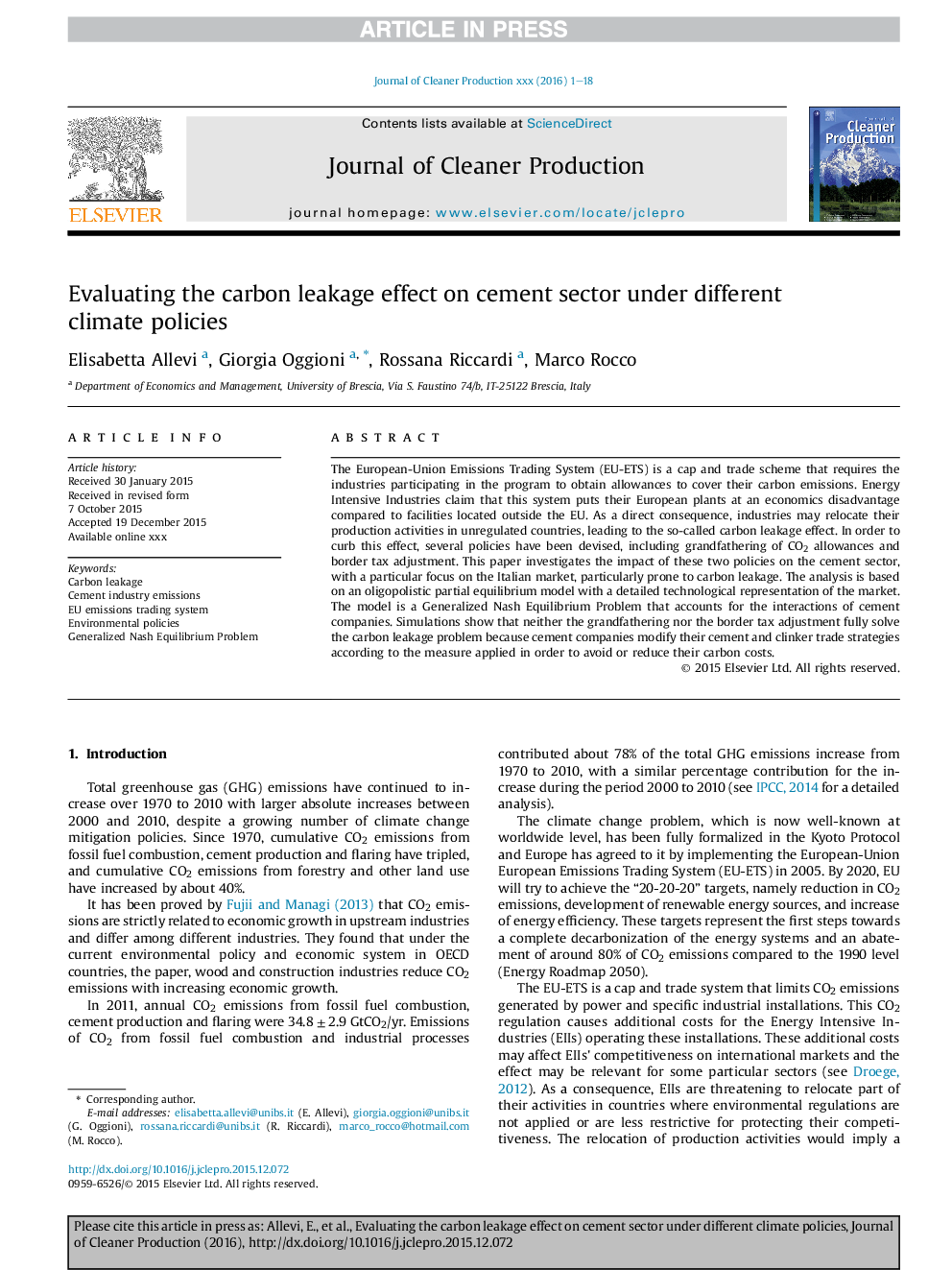| Article ID | Journal | Published Year | Pages | File Type |
|---|---|---|---|---|
| 5479570 | Journal of Cleaner Production | 2017 | 18 Pages |
Abstract
The European-Union Emissions Trading System (EU-ETS) is a cap and trade scheme that requires the industries participating in the program to obtain allowances to cover their carbon emissions. Energy Intensive Industries claim that this system puts their European plants at an economics disadvantage compared to facilities located outside the EU. As a direct consequence, industries may relocate their production activities in unregulated countries, leading to the so-called carbon leakage effect. In order to curb this effect, several policies have been devised, including grandfathering of CO2 allowances and border tax adjustment. This paper investigates the impact of these two policies on the cement sector, with a particular focus on the Italian market, particularly prone to carbon leakage. The analysis is based on an oligopolistic partial equilibrium model with a detailed technological representation of the market. The model is a Generalized Nash Equilibrium Problem that accounts for the interactions of cement companies. Simulations show that neither the grandfathering nor the border tax adjustment fully solve the carbon leakage problem because cement companies modify their cement and clinker trade strategies according to the measure applied in order to avoid or reduce their carbon costs.
Keywords
Related Topics
Physical Sciences and Engineering
Energy
Renewable Energy, Sustainability and the Environment
Authors
Elisabetta Allevi, Giorgia Oggioni, Rossana Riccardi, Marco Rocco,
